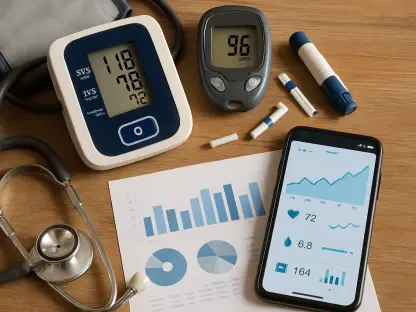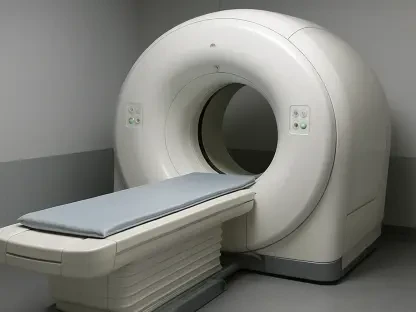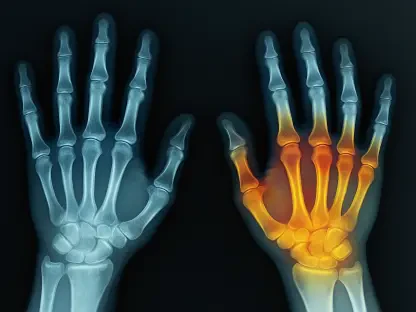I’m thrilled to sit down with James Maitland, a renowned expert in healthcare mergers and acquisitions with a deep understanding of antitrust regulations and their impact on the industry. With years of experience analyzing complex deals, James offers unparalleled insights into how these transactions shape the future of healthcare. Today, we’re diving into the recent $3.3 billion acquisition of Amedisys by UnitedHealth, a deal that faced significant regulatory scrutiny. Our conversation will explore the timeline of this merger, the Department of Justice’s concerns, the details of the settlement, UnitedHealth’s growing dominance in the home health sector, and the broader implications for their business strategy and the industry at large.
Can you walk us through the journey of UnitedHealth’s acquisition of Amedisys, from the initial agreement to the final closing?
Certainly, Matthias. UnitedHealth first agreed to acquire Amedisys back in 2023, outbidding an earlier deal Amedisys had with another player. It wasn’t a smooth ride, though. Just two months after the announcement, the Department of Justice stepped in, requesting more information due to concerns about competition. Despite attempts to address these issues with divestitures, the DOJ wasn’t satisfied and sued to block the deal in November of that year. It took nearly two years of back-and-forth, but a settlement was finally reached on August 7, 2025, and the deal closed shortly after, with Amedisys stopping trading on Nasdaq on August 15, 2025.
What were the primary reasons the Department of Justice initially opposed this merger?
The DOJ’s main concern was that the merger would significantly reduce competition in the home health and hospice services market across hundreds of U.S. markets. They argued that combining UnitedHealth’s existing assets with Amedisys would create a dominant player, potentially leading to higher prices and lower quality of care for patients. There was also a worry about wage competition for healthcare workers in these sectors. Essentially, they saw this as a threat to both consumers and employees in an already concentrated industry.
How did the settlement address the DOJ’s concerns, and what exactly did UnitedHealth and Amedisys agree to do?
The settlement, finalized on August 7, 2025, required UnitedHealth and Amedisys to divest 164 home health and hospice locations. The DOJ believed this would help preserve competition in terms of pricing and wages in the affected markets. While it was a significant concession, some antitrust experts felt the settlement was lighter than expected, given the initial pushback. Nonetheless, a judge approved it, and it paved the way for the merger to close. It was a compromise, but one that allowed UnitedHealth to move forward with the acquisition.
Do you think the settlement was sufficient to protect competition in the home health and hospice market, or could more have been done?
That’s a tough call. On one hand, divesting 164 locations is a tangible step to maintain some level of competition in key markets. It’s not insignificant. On the other hand, when you look at the scale of UnitedHealth’s operations post-merger, especially with their existing ownership of LHC Group, you have to wonder if this divestiture really levels the playing field. I think the DOJ could have pushed for stricter terms or a broader divestiture, but they likely weighed the benefits of a quicker resolution against a prolonged legal battle. It’s a partial win for competition, but not a complete safeguard.
How does acquiring Amedisys strengthen UnitedHealth’s position in the home health and hospice sector?
This acquisition is a game-changer for UnitedHealth. They were already a major player with LHC Group, which they acquired for $5.4 billion in 2023, providing services across dozens of states. Adding Amedisys, which serves over 465,000 patients annually across 38 states and Washington, D.C., significantly boosts their footprint. Some experts now believe UnitedHealth could be the largest provider of home health and hospice services in the U.S. It’s not just about size, though—it’s about deepening their control over a critical segment of healthcare delivery, which aligns with their broader goals.
In what ways does this deal fit into UnitedHealth’s larger business strategy?
This acquisition is a key piece of UnitedHealth’s vertical integration puzzle. By combining their insurance arm, UnitedHealthcare, with healthcare delivery assets like Amedisys under their Optum division, they create a more seamless system where they can manage both the payment and provision of care. This synergy can lead to cost efficiencies and better coordination of services, at least in theory. While Amedisys might only be a modest contributor to their earnings initially, the long-term value lies in how it strengthens their ability to keep patients healthy at home, reducing hospital costs and aligning with value-based care trends.
There’s been criticism from some lawmakers about this merger and the DOJ’s settlement. Can you shed light on their concerns?
Absolutely. A group of Democratic lawmakers publicly criticized the DOJ’s settlement, arguing that it doesn’t go far enough to protect competition. They’re worried that this deal could lead to higher costs and reduced access to home health and hospice care for patients. Their statement was pretty blunt, calling it a failure by the DOJ to shield Americans from a monopolized healthcare system. They see this as favoring large corporations over consumers, and it’s part of a broader frustration with consolidation in healthcare, especially given other ongoing investigations into UnitedHealth’s practices.
Looking ahead, what is your forecast for the impact of mergers like this on the healthcare industry over the next few years?
I think we’re going to see continued consolidation in healthcare, especially in segments like home health where demand is growing as the population ages. Deals like UnitedHealth and Amedisys set a precedent, showing that even with regulatory hurdles, large players can still push through with strategic divestitures. However, I expect antitrust scrutiny to intensify, especially with political pressure mounting. The balance between innovation and competition will be a constant tension. We might see more aggressive DOJ actions or even legislative changes to curb mega-mergers, but for now, companies like UnitedHealth are likely to keep expanding their reach, reshaping how care is delivered in the process.









